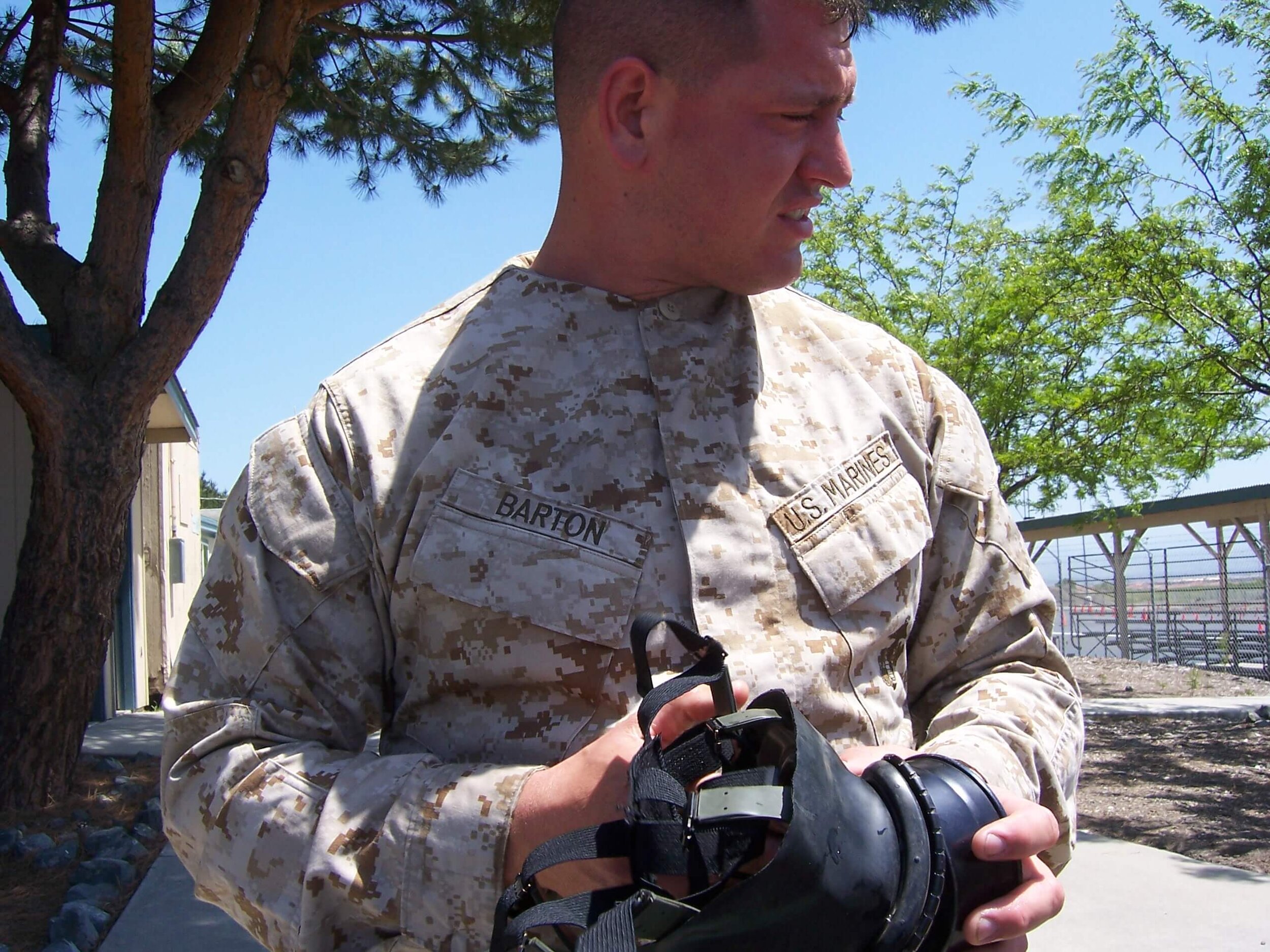By Jon Barton
We often hear about the devastating injuries sustained by soldiers in Afghanistan and Iraq. Their suffering is profound and should be a bigger part of our national consciousness. We Americans should also talk about the most common disabilities experienced by veterans—hearing loss and tinnitus. These are less visible but insidious conditions that can seriously upend every aspect of veterans’ lives: their overall physical and psychological wellness, along with social interactions, even work performance.
I know. My hearing was damaged during two combat tours as a Marine infantryman, and later as a light armored reconnaissance vehicle commander, from 2001 to 2011.
One in four of 18 million veterans had a service-related disability in 2018, and according to the June 2020 National Health Statistics Report from the U.S. Department of Health and Human Services, hearing loss and tinnitus are among the top disabilities. Veterans’ hearing loss and tinnitus (a symptom commonly described as a ringing in the ears, but it also can sound like roaring, clicking, hissing, or buzzing) are largely attributed to high exposure to loud noise with most recent veterans particularly affected by roadside bombs and other improvised explosives.
The respected, nonpartisan Cost of War Project based at Brown University estimates that about 3 million veterans served in Iraq and Afghanistan, either in direct combat deployment or support roles. With hearing loss among the most common service-related disabilities, the numbers of veterans affected may be in the hundreds of thousands.
When I entered basic training in 2001 I was issued earplugs, but they were faulty. Shortly before my first deployment to Iraq in 2003 I received 3M earplugs that kept falling out; these are the focus of a current class-action lawsuit. I am a plaintiff in the lawsuit, though I have not been deposed and have no direct involvement yet with the case. Advocating for better hearing protection has become a personal cause.
Now I am a consultant in Hollywood on films and video games about combat and war and, as I did in Afghanistan and Iraq, I relax by kicking back and playing video games. Because my hearing is impaired I tend to crank up the volume to hear better— but it never occurred to me until watching a short video called “Grenades” that I was adding insult to injury and probably making my hearing loss worse.
Hearing loss is a constant struggle for me, both physically draining and psychologically frustrating. People have to yell to get my attention even if I’m in the next room. I hear ringing in my ears that cause dizziness and headaches. I can’t hear certain frequencies, which makes listening to music difficult. I don’t talk on the phone unless I use earbuds, otherwise I can’t hear what the other person is saying. I find myself talking much louder than I should or need to in social settings. I can’t hear TV unless I blast the volume so loud others can’t tolerate it.
Today for my work, I use expensive, custom-fit electronic "in-ear" voice-activated earplugs, clip-on ear, and/or advanced frequency-activated, helmet-integrated over-ear headsets. I train actors in using this cutting-edge ear protection equipment on set because I feel life can imitate art, and if military leaders see these used in action movies, then perhaps they'll push to get them in their military units. It has always upset me that I never had these devices on the battlefield, so in the wars I create, I want to make sure everyone has the best!
I’m aware that hearing damage has broader health ramifications. Most concerning to me is the link between untreated hearing damage and cognitive decline. Difficulty hearing also puts stress on the heart by releasing fight or flight hormones. While I have not had these problems, I’d be a fool if I didn’t worry about the future.
I am not alone. Every veteran out of many dozens I know has some degree of hearing loss. Many of my older vet friends wear hearing aids because their hearing has become worse over the years. Because of this, I have become an advocate and am always telling fellow vets and everyone else to protect their hearing from loud noise and get their ears checked twice a year.
In training we were taught to use hearing protection, or “ear-pro” in military terms. We used protection religiously in training, and earplugs were mandatory on almost all live-fire training ranges. But the military’s operational practices during combat are far less restrictive than in training. Basically, ear-pro is optional in war.
The bigger issue was not having access to more advanced ear-pro technology that pilots, tank drivers, flight line crew, mechanics, and others did have. Some of that technology is making its way into the Infantry and other fighting units. However, it has taken until this year for combat ground units to finally get full over-the ear-combination communication and ear-pro equipment.
In my time in the Corps I only ever witnessed step-change technology in ear-pro twice: The first time was right before combat deployments in ‘03, where we switched out our little OD green flimsy stick plugs to new “cutting edge” long and short double sided combat plugs. They turned out to be just as flimsy, and just as impossible to fight in. Five years later when I left the infantry and became a vehicle commander I was issued my first CVC helmet. This amazing piece of kit had high-speed noise-canceling headphones build right in, and it was a game changer. Unfortunately, going from grunts to the “Iron Horse,” made me aware of how bad we had it on the ground side regarding ear-pro.
On my first training op at Camp Pendleton as a VC, I took my CVC off and immediately became aware of the noise damage your ears could get riding inside an armored vehicle unprotected. With my helmet on I was able to communicate safely and effectively with my crewmen while all around us roared a vicious, unrelenting, and unbearable cacophony. But seated right behind me on the troop benches were my infantry brothers, who could only communicate with hand signals and were driven nearly mad by the noise onslaught to their ears for hours. As a Marine, I fully understand that noise in the battlespace is just another part of the “fog of war,” but that was the first time I began to wonder why had we spent so many years with little sticks in our ears during combat when technology existed that could have helped us be more effective warfighters.”
I encourage the military to standardize the best hearing and communications equipment; create a more rigid policy for its use; offer better education about the importance of hearing protection; make biannual or annual hearing tests mandatory (instead of every six years), and teach soldiers how to evaluate their own hearing, with an open path to bringing it up the chain of command.
There is always room for every branch of the military to do better on protecting the well-being and health of its soldiers. I hope my experience and that of others will help bring about new policies and practices to do that .
A version of this originally appeared in Stars & Stripes. Retired Marine Sgt. Jon Barton is featured in short videos about noise-induced hearing loss, both as part of a group talking about hearing loss and about his own experiences. The video series was created by PICROW, which has worked on Emmy-winning series such as “The Marvelous Mrs. Maisel” and “Transparent.” For more, see hhf.org/keeplistening.









Even within the d/Deaf and hard of hearing umbrella, our access needs and identities vary widely. That in-between space can feel like nowhere—not “hearing enough” for the hearing world, not “Deaf enough” for Deaf spaces.